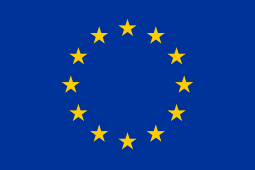Wrapping up MILE with a European event in Brussels
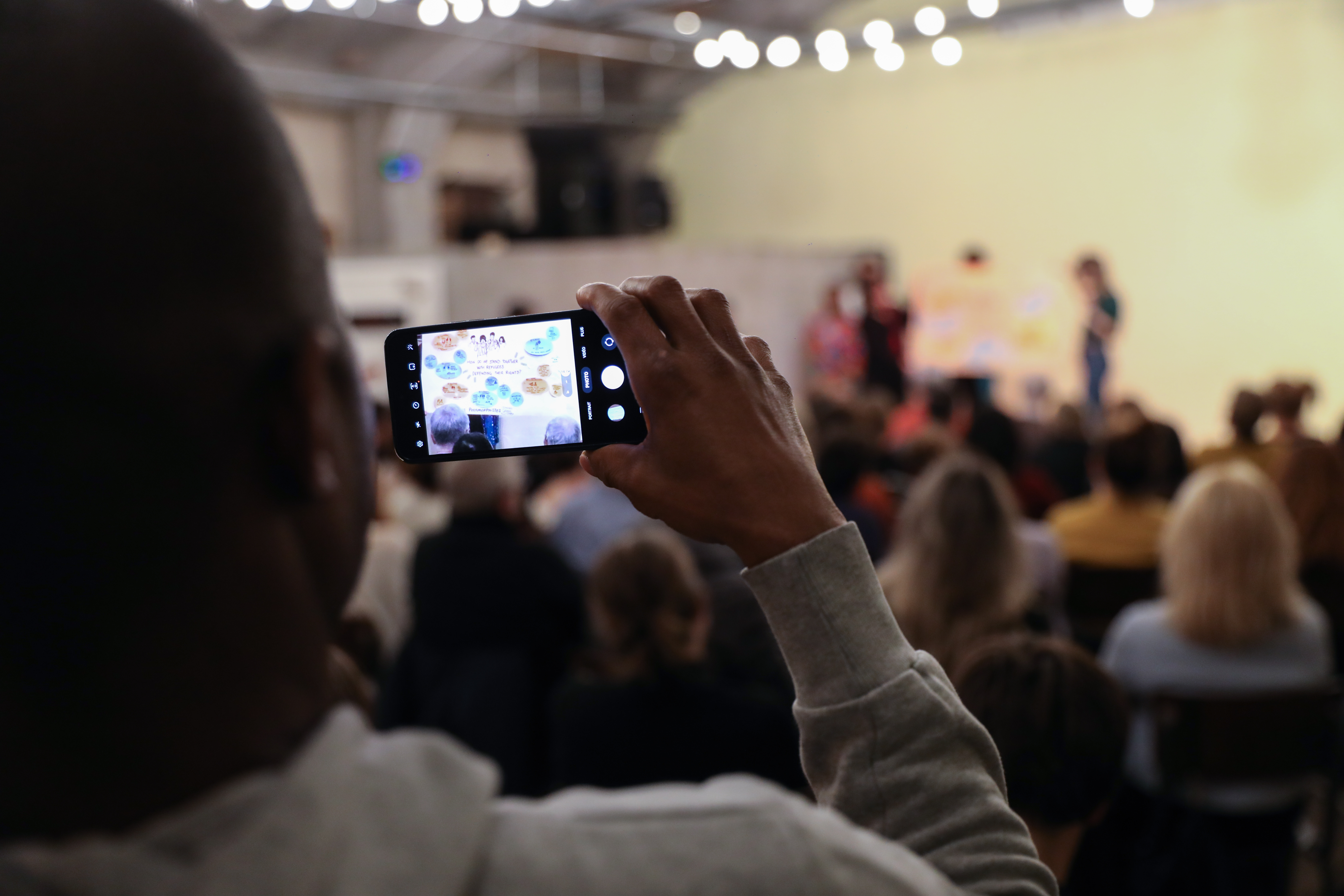
The MILE project is slowly but surely nearing the end of its two-year journey, after having brought together individuals and organisations from across Europe, including Belgium, Spain, Greece, Latvia, the UK and the Netherlands. Newcomers, Brussels locals, municipalities, organisations led by or working with migrant and refugees, civil society organisations, and research teams exchanged local […]
MILE Blog post: Bridging the Democracy Gap
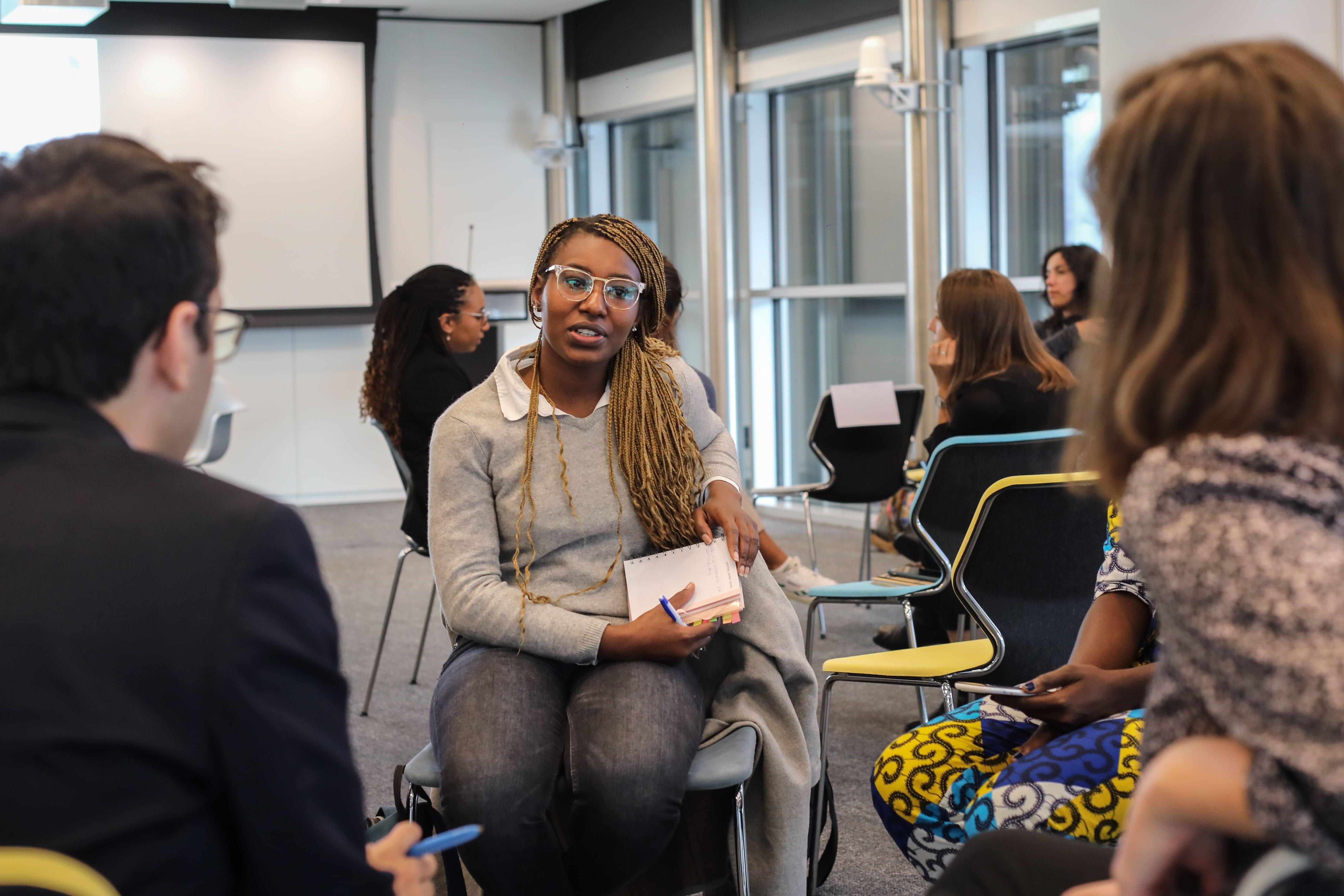
Sign up here if you would like to receive updates and event invitations from the MILE project. How can we make political participation more inclusive and accessible to everyone? MILE partners UNITEE, New Women Connectors, and INTEGRIM Lab held an event on 27 September 2023, in collaboration with the European Parliament, to explore this question with […]
INTEGRIM Lab presents the MILE project at the European Sociological Association mid-term Conference in Lisbon
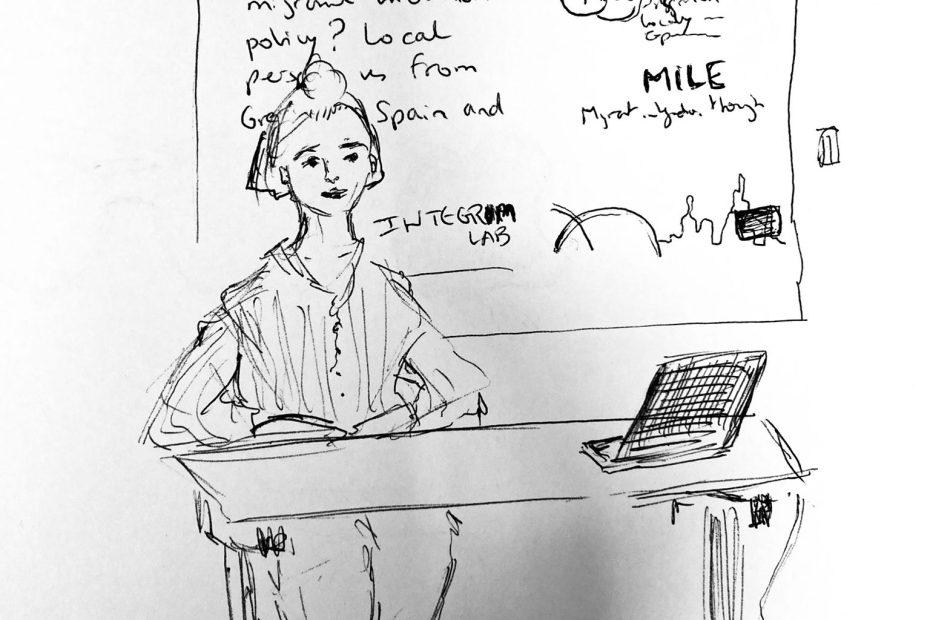
MILE project partner INTEGRIM Lab recently presented at the mid-term conference of the European Sociological Association RN27 (Southern European societies) that took place at Lisbon’s Lusofona University and Nova University. The theme of this conference focused on “Territories, Communities and Sustainability” in Southern Europe. INTEGRIM Lab’s co-director Amandine Desille presented research from the MILE project, […]
INTEGRIM Lab at the SISP Conference – Is there a way to bridge the gap between research, policy-making, and practice?
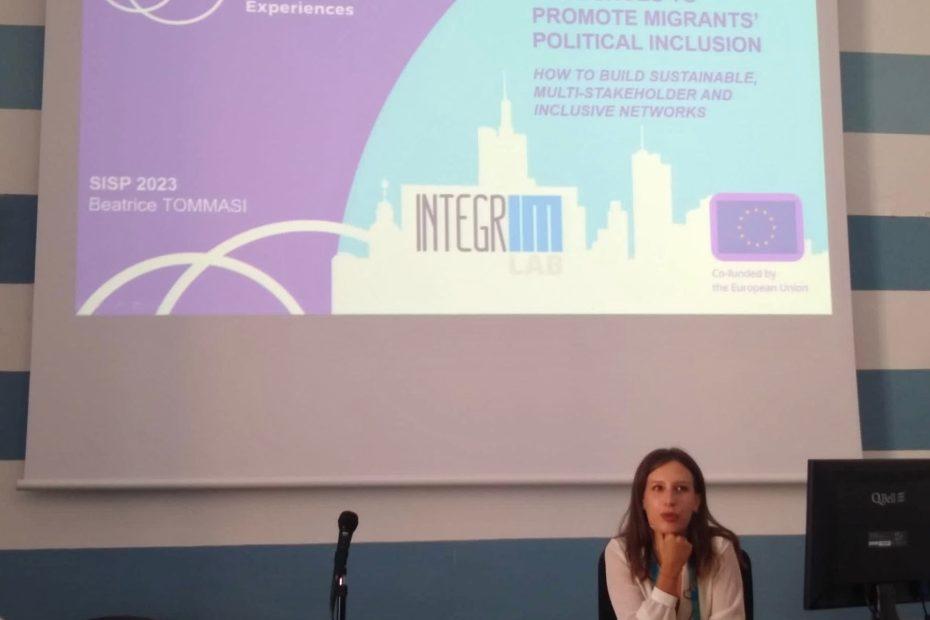
Reflections on Integrim’s participation in SISP’s Annual Conference MILE project partner INTEGRIM Lab recently participated in the 36th annual conference of the Italian Political Science Association – SISP, Società Italiana di Scienza Politica. Beatrice Tommasi presented the results of the MILE policy brief “Leveraging EU resources to promote migrants’ political inclusion: How to build sustainable, […]
MILE concludes training on inclusive participation and leadership in Ripollet
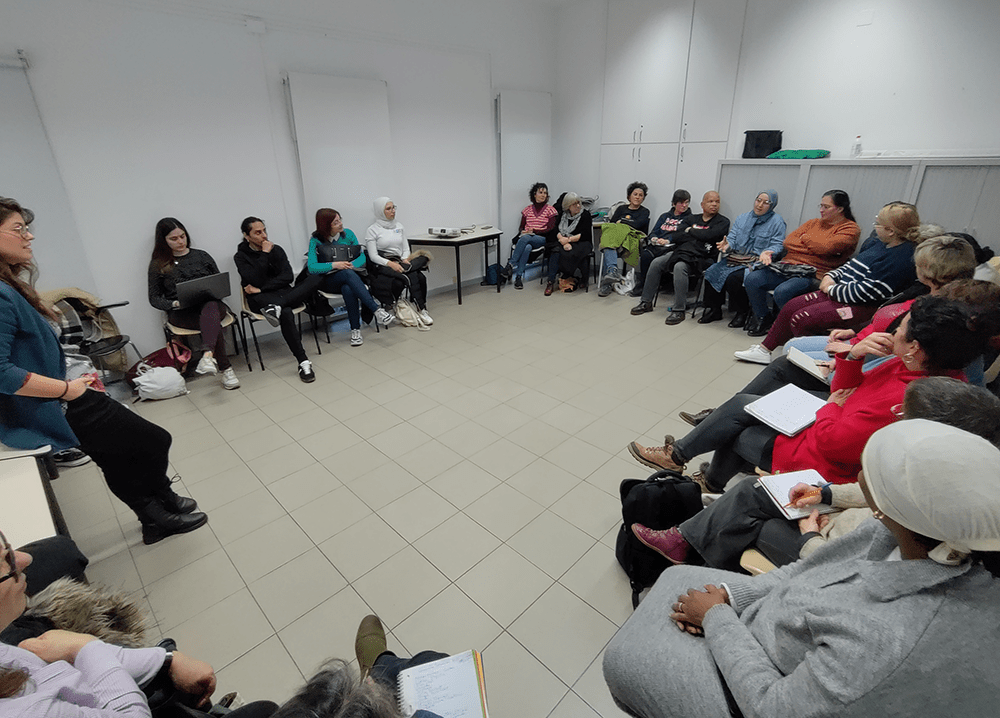
In March, MILE concluded its training programme on inclusive participation with a final training session for migrants and refugees in Ripollet, Spain, on 6 March 2023. As for the previous sessions, the training was designed and implemented by New Women Connectors and in the case of the training in Ripollet, led by the Barcelona-based MILE […]
Partners meet in Riga for MILE’s annual consortium meeting

On 7 February 2023, MILE partners met in Riga, Latvia, for the project’s second annual consortium meeting. Hosted by the municipality of Riga, the meeting provided an opportunity for project partners to meet in person to take stock of MILE’s results and activities during the first year of implementation and to plan upcoming publications, events […]
Three questions to: Paul Soete, European Economic and Social Committee

In our Q&A series “Three Questions To”, we present different European perspectives on migration, participation and local inclusion, this time with Paul Soete, Chair of the Group on Immigration and Integration, European Economic and Social Committee (EESC). The EESC is an advisory body to the EU, representing employers’ and workers’ organisations and other interest groups. Within […]
Taking a closer look at the MILE training for migrants and municipalities on meaningful participation
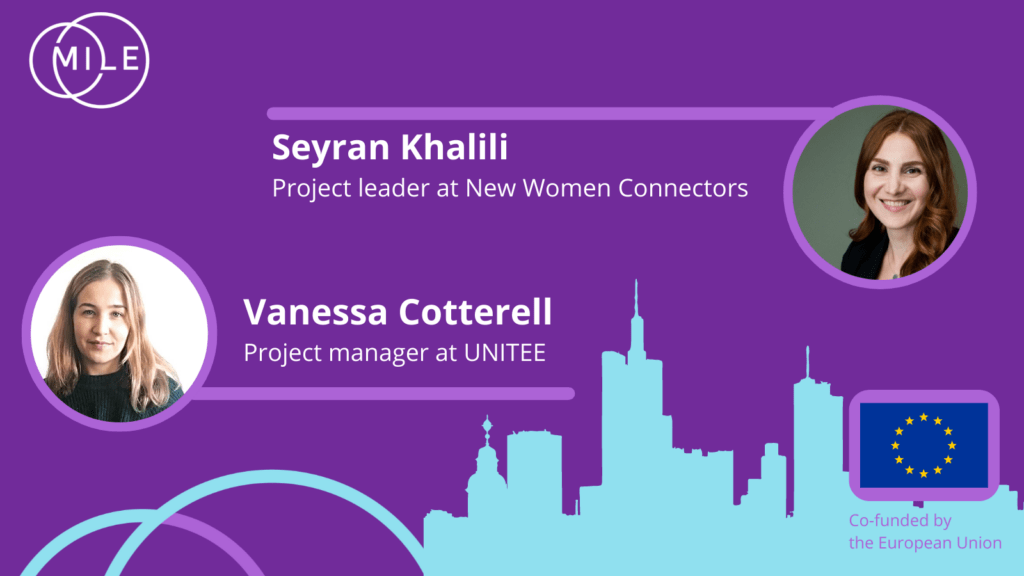
This interview was conducted by Vanessa Cotterell (coordinator of MILE, UNITEE) with Seyran Khalili from New Women Connectors (NWC). NWC are faciliating the training for municipalities and migrant communities in the context of the MILE project. Seyran is an organisational psychologist working in the field of inclusion and social justice. She is active in civil […]
Co-designing policies with migrants for more inclusive cities
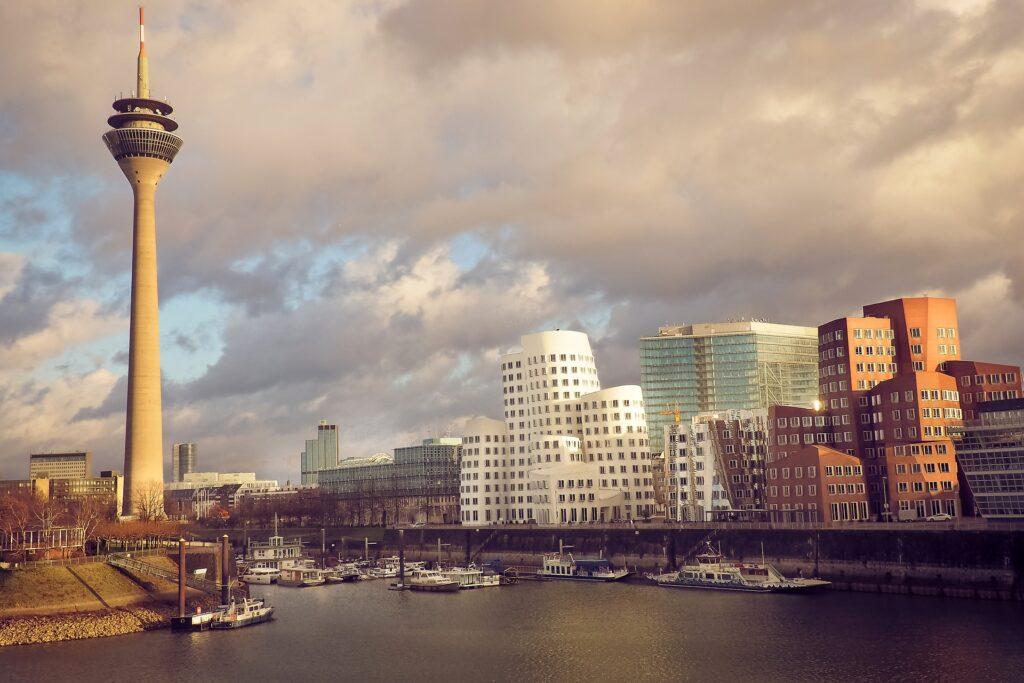
What makes a city truly inclusive? How can municipalities ensure that local policies can meet the needs of newcomers, refugees and migrants while providing opportunities and space for them to participate in the design of these policies? The traditional, often top-down policy-making process tends to separate expertise from experience: policies are made by experts and […]
MILE training on inclusive and meaningful participation
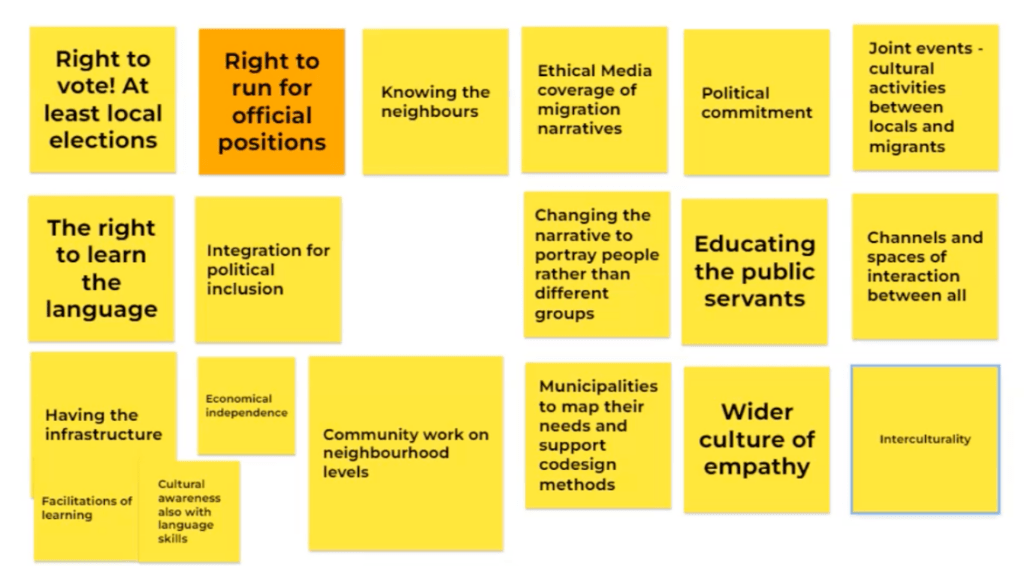
As part of the project’s activities to promote the participation of migrants and refugees in local policy-making, MILE is currently organising free online training in four European municipalities: Riga (Latvia), Ripollet (Spain), Ioannina (Greece) and Birmingham (UK) around the topics of meaningful and inclusive participation, diversity in policy-making, migrant and refugee advocacy, interculturality and collaboration. […]

